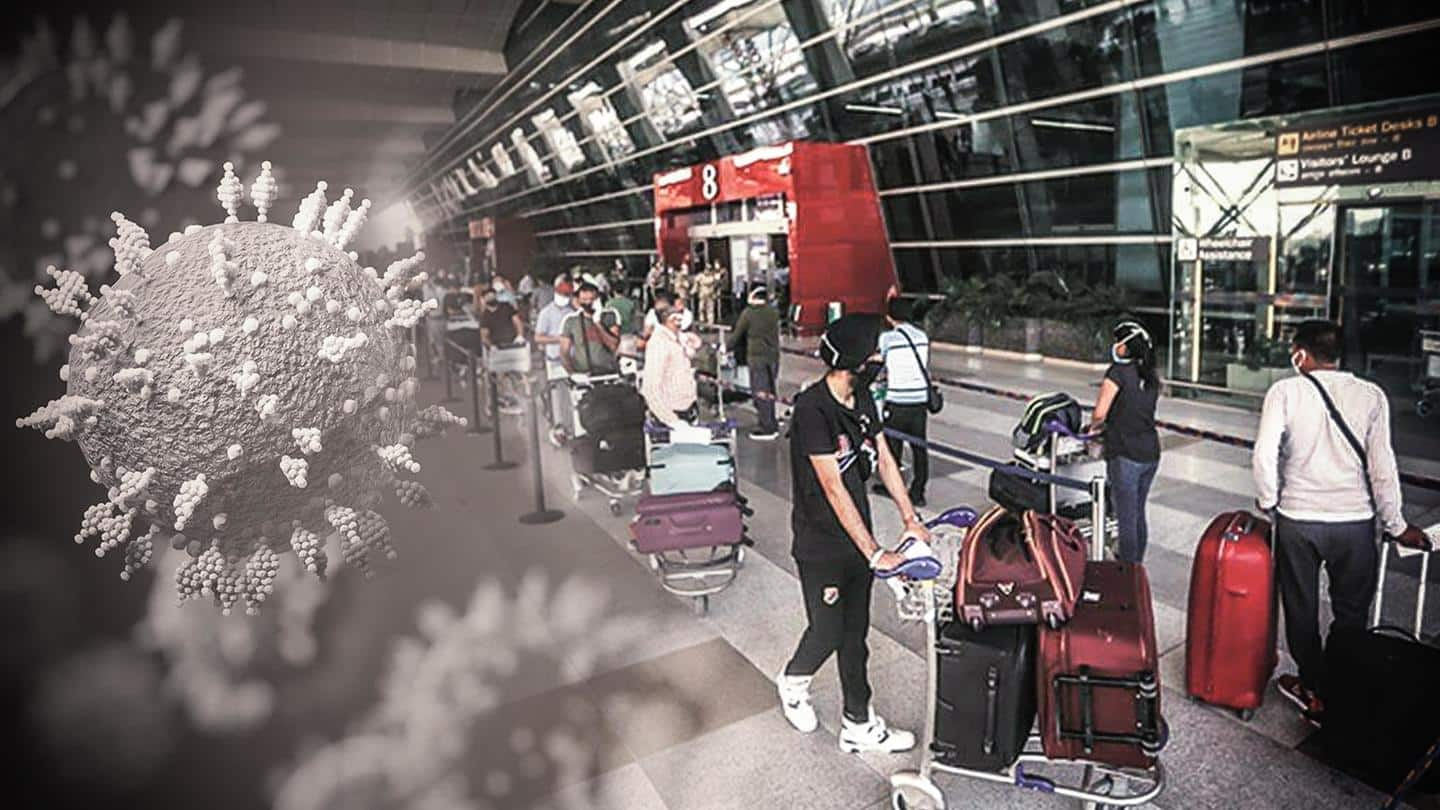
Omicron scare: India's new travel rules kick in today
What's the story
Fresh rules for international travelers in view of the Omicron variant of coronavirus come into effect from Wednesday (December 1).
Testing at airports across India has been made mandatory for travelers coming from dozens of "at-risk" nations while those arriving from other countries will undergo random testing.
India is set to resume regular international flight operations from December 15.
Context
Why does it matter?
The new rules are crucial for international passengers arriving in India and may affect travel plans for many of them.
Even though India has not reported a case involving the Omicron variant as yet, officials and the public are concerned.
The strain is said to be the most heavily mutated version of the coronavirus SARS-CoV-2 so far.
Rules
What are the fresh rules?
All international arrivals in India need to fill a self-declaration form and submit a negative RT-PCR report before the journey.
Those arriving from "at-risk" nations must give their samples for testing.
If found positive, they will be quarantined and their samples will be sent for genome sequencing.
If found negative, they will undergo a seven-day home quarantine and a retest on the eighth day.
Details
What are the fresh rules?
State officials will physically visit homes of quarantined individuals to ensure compliance.
States are also required to undertake contact tracing of positive individuals and follow up for two weeks.
Countries that have been labeled "at-risk" include Brazil, Botswana, China, Hong Kong, Israel, Mauritius, New Zealand, Singapore, South Africa, the United Kingdom, Zimbabwe, and all the European nations.
Information
4-6 hours' wait at Delhi airport for passengers
International passengers may have to wait for up to six hours at the Delhi airport for their COVID-19 test results, NDTV reported. The company handling testing for that airport can process up to 500 tests per hour and efforts are underway to enhance capacity.
Strain
What do we know about Omicron?
Omicron—whose scientific name is B.1.1.529—has some 50 mutations including more than 30 in its key spike protein alone.
The strain may be more transmissible, however, more studies are required to establish the same.
Symptoms in people carrying the variant in South Africa were said to be "mild."
Studies are on to determine the efficacy of existing COVID-19 tests, vaccines, and treatment against Omicron.